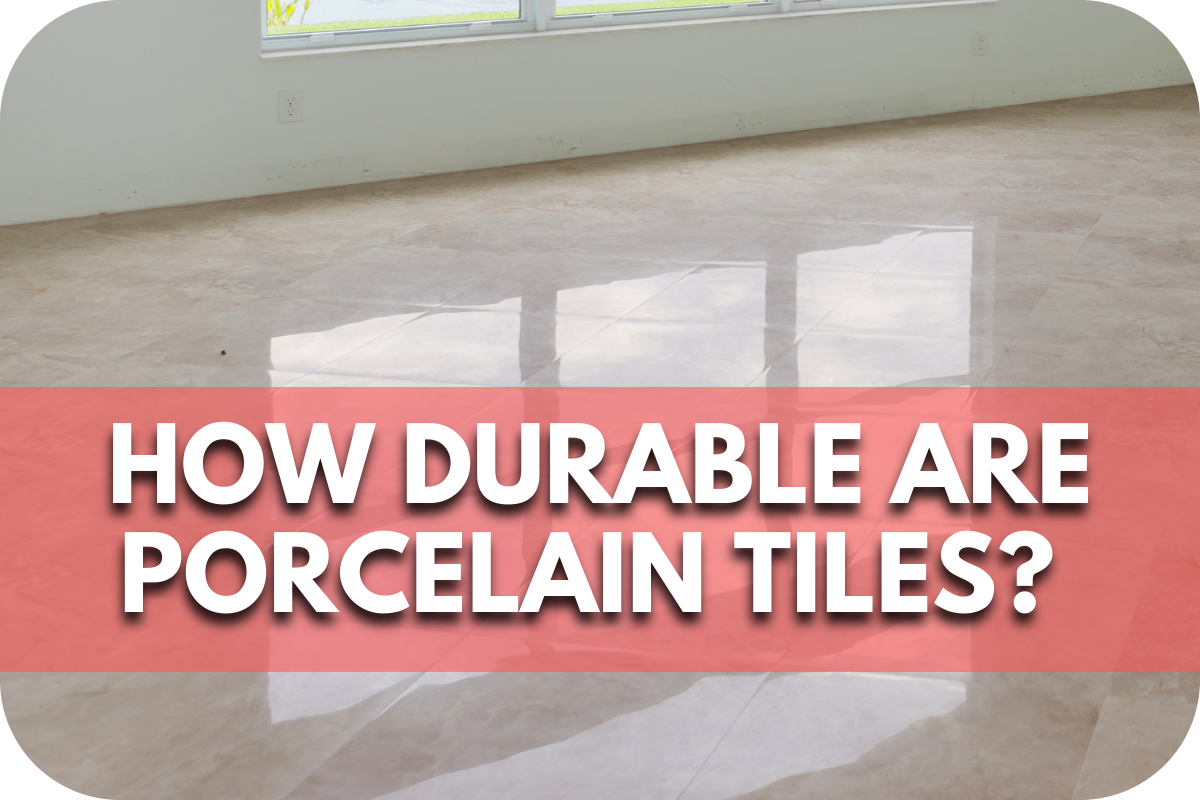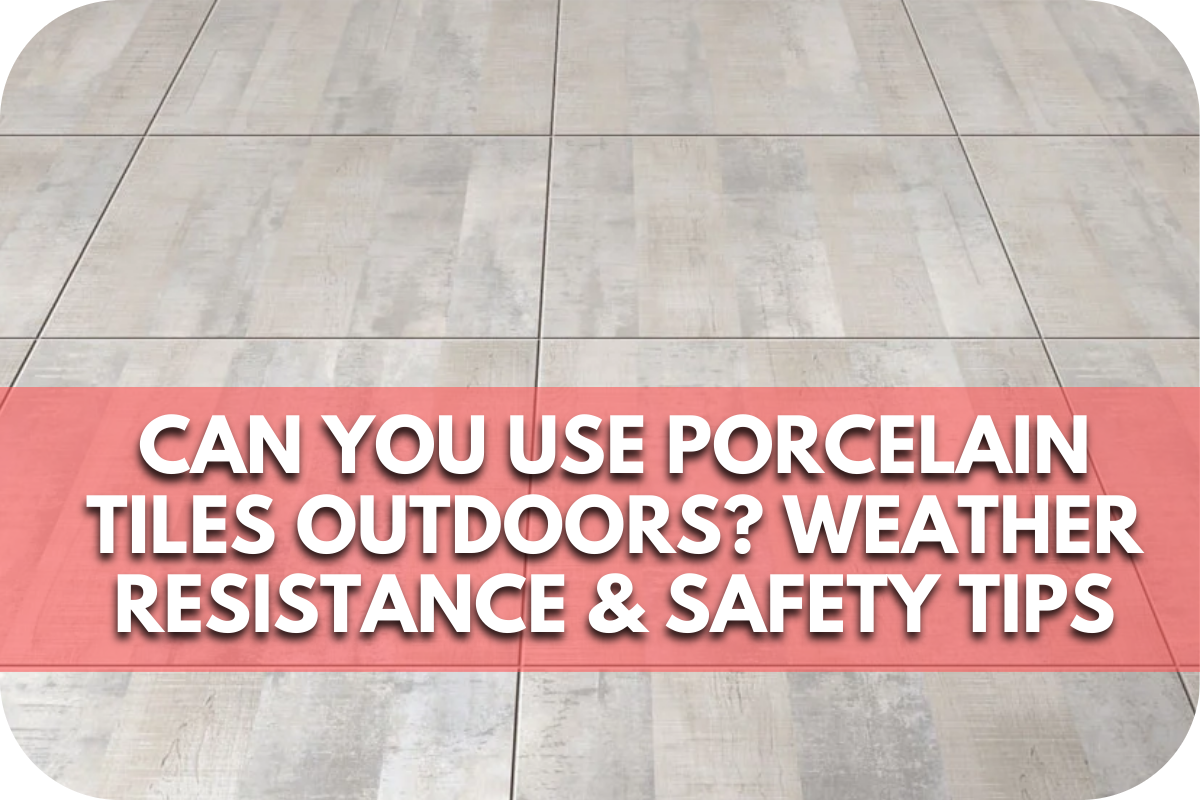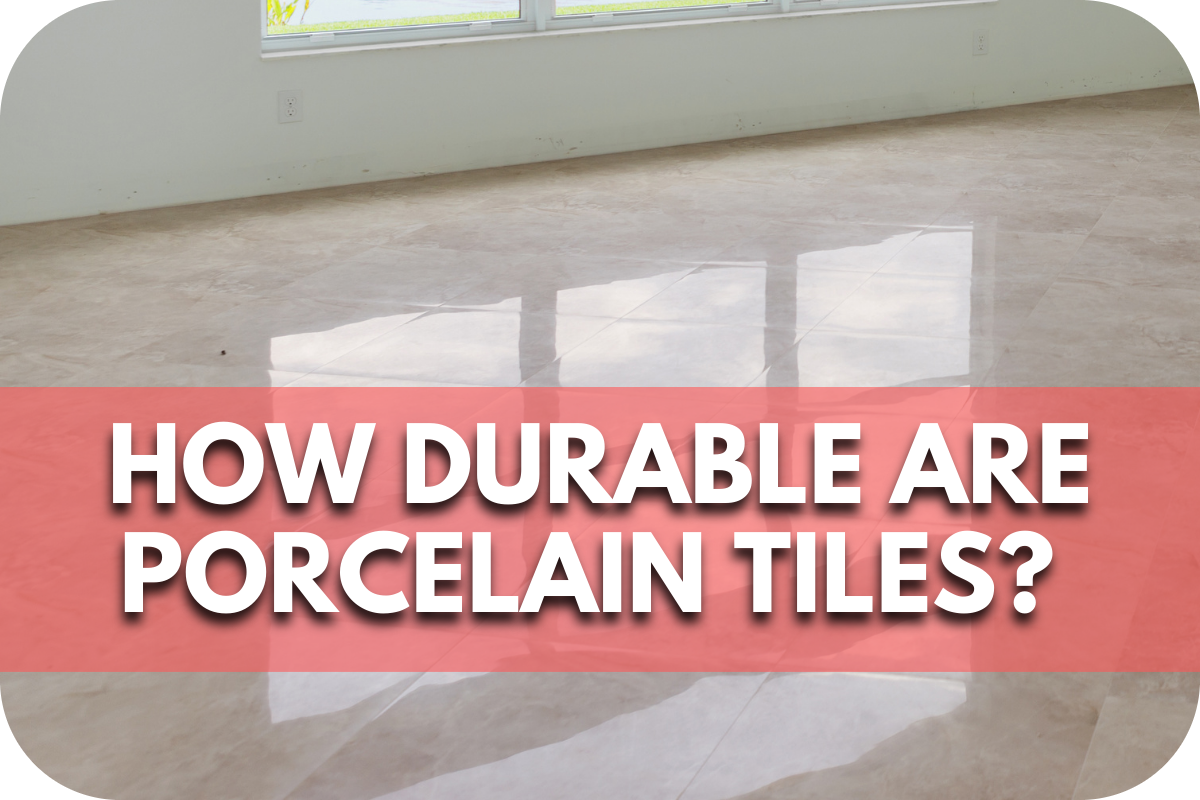Are Porcelain Tiles Worth the Investment? Pros, Cons & Expert Advice
Choosing the right flooring for your home can be a daunting task with so many options available.
You want a durable, stylish, low-maintenance solution, but the overwhelming choices leave you uncertain.
This comprehensive guide explores the pros and cons of porcelain tiles and offers expert advice on why they might be the perfect investment.
Are Porcelain Tiles Worth the Investment? Pros, Cons & Expert Advice
Yes, porcelain tiles are worth the investment due to their exceptional durability, low maintenance, and versatile design options. While they can be more expensive and more complicated to install, their long-term benefits and resilience make them a valuable choice for residential and commercial spaces.
What Are Porcelain Tiles?
Porcelain tiles, renowned for their durability and aesthetic appeal, are ceramic tile crafted from a denser, more refined clay and fired at higher temperatures. This process results in a robust and water-resistant material, making porcelain tiles an excellent choice for indoor and outdoor applications.
Their low porosity means they are less prone to moisture absorption, which helps prevent staining and damage from freeze-thaw cycles.
One of the standout features of porcelain tiles is their versatility in design. Available in various colours, textures, and finishes, they can mimic natural stones, wood, and even concrete, providing a high-end look without the associated maintenance.
Additionally, porcelain tiles are highly resistant to scratches and wear, making them suitable for high-traffic areas in homes and commercial spaces.
Moreover, porcelain tiles are known for their ease of maintenance. A simple routine of sweeping and occasional mopping keeps them looking pristine.
Pros of Porcelain Tiles
Porcelain tiles offer many benefits, making them popular for homeowners, builders, and designers alike. Here are some of the critical advantages of porcelain tiles:
1. Durability
One of the most significant advantages of porcelain tiles is their exceptional durability. Due to their dense composition and high firing temperature, porcelain tiles are tough and resistant to wear and tear. They can withstand heavy foot traffic, making them suitable for residential and commercial applications.
2. Low Maintenance
Porcelain tiles are relatively low maintenance compared to other flooring materials such as hardwood or natural stone.
Porcelain tiles are easy to clean and require minimal upkeep to keep them looking their best. Regular sweeping and mopping with a mild detergent are usually all that is needed to maintain their beauty and integrity.
3. Water Resistance
Another advantage of porcelain tiles is their high level of water resistance. Unlike other flooring types, such as hardwood or laminate, porcelain tiles are impervious to water damage. This makes them an excellent choice for moisture-prone areas, such as bathrooms, kitchens, and laundry rooms.
4. Stain Resistance
Porcelain tiles are also highly resistant to stains, making them ideal for areas where spills occur daily. Unlike natural stone, which can be porous and prone to staining, porcelain tiles have a non-porous surface that repels liquids and prevents staining. This makes them easy to clean and maintain, even in high-traffic areas.
5. Style Options
Porcelain tiles come in various styles, colours, and patterns, allowing endless design possibilities. Whether you prefer the look of natural stone, wood, concrete, or something more contemporary, there is a porcelain tile to suit your taste and style.
The options are virtually limitless, from sleek and modern to rustic and traditional.
6. Eco-Friendly
Many porcelain tiles are made from recycled materials and manufactured using environmentally friendly processes. This makes them a sustainable choice for eco-conscious homeowners who want to reduce their carbon footprint and minimise environmental impact.
Cons of Porcelain Tiles
While porcelain tiles offer many advantages, there are also some drawbacks to consider before deciding. Here are a few potential disadvantages of porcelain tiles:
1. Cost
One of the main drawbacks of porcelain tiles is their cost. Porcelain tiles tend to be more expensive than other types of flooring, such as ceramic tile or vinyl.
The higher cost is due to the quality of the materials and the manufacturing process involved in producing porcelain tiles. However, many homeowners consider porcelain tiles a worthwhile investment due to their durability and long-term value.
2. Hardness
Porcelain tiles are tough and dense, which can make them uncomfortable to stand on for long periods, especially in areas where you are barefoot, such as kitchens or bathrooms.
Some people may find porcelain tiles too hard underfoot, particularly if they have joint or back issues. However, this can often be mitigated using area rugs or padded mats in high-traffic areas.
3. Installation
Installing porcelain tiles can be complex and time-consuming, especially if you are not experienced with tile installation. Porcelain tiles require a sturdy, level subfloor and precise installation to ensure a seamless finish.
It is often best to hire a professional tile installer to ensure the job is done correctly and to avoid costly mistakes.
4. Brittle
While porcelain tiles are highly durable, they can be brittle and prone to chipping if not handled carefully during installation or maintenance. It is essential to handle porcelain tiles with care and avoid dropping heavy objects on them to prevent damage.
Additionally, using the wrong cleaning products or tools can scratch or abrasion the tiles’ surface.
Expert Advice for Investing in Porcelain Tiles
When investing in porcelain tiles for your home or business, several factors must be considered to ensure you make the right decision. Here are some expert tips for investing in porcelain tiles:
1. Consider Your Lifestyle and Foot Traffic
Before choosing porcelain tiles, consider your lifestyle and the foot traffic your floors will experience. If you have a busy household with children and pets, you need a durable, low-maintenance flooring option that can withstand wear and tear.
Porcelain tiles are an excellent choice for high-traffic areas due to their durability and resistance to stains and scratches.
2. Choose the Right Type of Porcelain Tile
Several types of porcelain tiles are available, each with unique characteristics and advantages. When selecting porcelain tiles for your space, consider size, colour, texture, and finish.
Matte-finish tiles offer a more natural look and are less slippery, making them ideal for wet areas such as bathrooms and kitchens. Glossy-finish tiles, on the other hand, can add a touch of elegance and sophistication to any room.
3. Factor in Installation Costs and Maintenance Requirements
Before purchasing porcelain tiles, it is essential to factor in the cost of installation and ongoing maintenance. While porcelain tiles are relatively low maintenance compared to other flooring types, they still require regular cleaning and upkeep to keep them looking their best.
If you are uncomfortable tackling the job yourself, be sure to budget for professional installation, as improper installation can lead to costly repairs.
4. Seek Advice from Professionals in the Industry
If you are unsure which type of porcelain tile is right for your space, don’t hesitate to seek advice from industry professionals.
A reputable tile supplier or installer can help you navigate the options available and make recommendations based on your specific needs and budget. They can also provide valuable insights into the latest trends and innovations in porcelain tile technology.
5. Research Reputable Suppliers and Manufacturers
When purchasing porcelain tiles, it is essential to research reputable suppliers and manufacturers to ensure a high-quality product.
Look for suppliers who offer a wide selection of porcelain tiles from trusted brands and who stand behind their products with warranties and guarantees. Reading customer reviews and testimonials can also help you gauge a supplier’s quality and reliability before making a purchase.
Conclusion
Porcelain tiles justify the investment with their unmatched durability, versatile designs, and low maintenance. Porcelain tiles are the definitive choice for a stylish and long-lasting upgrade to your space. Ready to transform your home? Contact Splendour In Stone today for personalised advice and exclusive offers.





